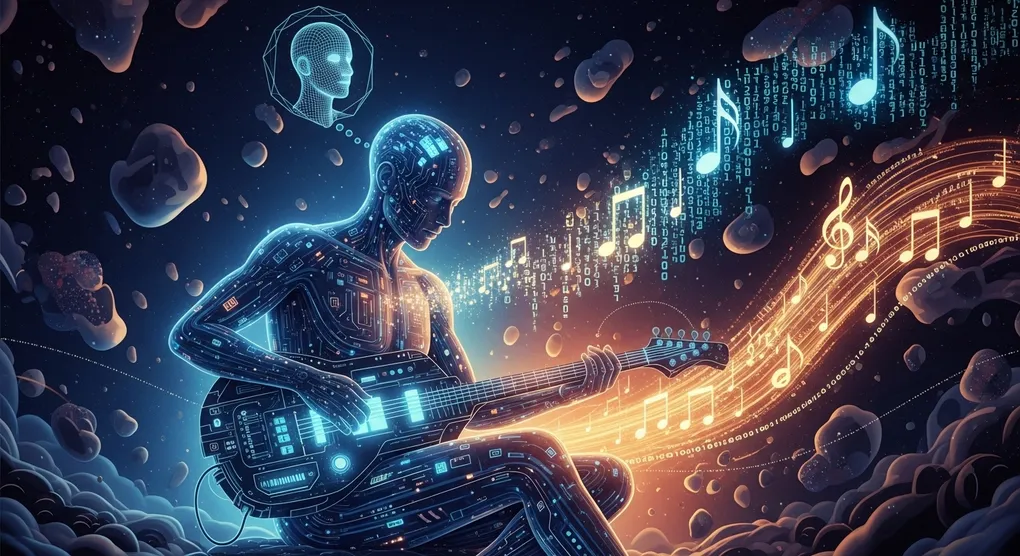
The intersection of artificial intelligence and music creation raises profound questions about authenticity, creativity, and the future of musical expression. A parody music creator shares their journey using AI tools to push creative boundaries while grappling with ethical considerations.
The Blurring Line Between Real and AI-Generated Music
The debate about what constitutes “real” music isn’t new. From the invention of the phonograph in the 1800s to the rise of synthesizers and sampling in hip-hop, new technologies have consistently challenged our notions of musical authenticity.
John Philip Sousa, often called the Taylor Swift of his era, criticized recorded music as “a substitute for human skill, intelligence and soul” that “reduce[s] the expression of music to a mathematical system.” Sound familiar? It’s remarkably similar to current discussions about AI in music creation.
A Parody Music Creator’s Journey with AI
The speaker runs a social media channel called “There, I Ruined It” dedicated to “lovingly destroying your favorite songs.” AI has become one of their primary tools for this creative destruction, leading to fascinating discoveries about the technology’s potential.
Voice Transformation: Conway Twitty Meets 50 Cent
One striking example involves taking the 50 Cent song “In Da Club” and reimagining it through the voice of country music legend Conway Twitty:
You can find me in the club, a bottle full of bub I’m into having sex I ain’t into making love So come give me a hug If you’re into gettin’ rubbed
The process involves recording vocals as a Conway Twitty impersonation, then running them through a custom AI voice model trained on Twitty’s actual voice. The result maintains the parody’s humor while demonstrating AI’s capacity for vocal transformation.
The Spectrum of AI Music Creation
The applications of AI in music creation span a wide spectrum, each raising different questions about authenticity and creativity:
Text-to-Music Generation
Creating entirely new songs from text prompts represents one end of the spectrum. The speaker describes generating a blues song about a “Starman” that initially felt unnervingly real - complete with the “pain in that man’s voice, who never existed.”
Lyric Assistance
Using AI for lyric writing raises questions about whether this differs significantly from traditional tools like rhyming dictionaries or thesauruses.
Sound Design and Synthesis
AI’s ability to create entirely new instrument sounds challenges our understanding of what constitutes a “real” instrument, much like early synthesizers did.
Style Transfer and Voice Cloning
Training AI models on an artist’s entire body of work to generate new songs in their style creates intriguing possibilities for both creation and parody.
Philosophical Questions About Musical Expression
The speaker poses several thought-provoking questions that get to the heart of what makes music meaningful:
Is Music Just Mathematical Patterns?
If music consists of melody, rhythm, and chords, then AI should be capable of creating “real” music. But if music is fundamentally about human expression and soul, then AI-generated music might always be missing something essential.
Does Creation Method Matter to Listeners?
Most listeners don’t research how songs are created before enjoying them. If an AI-generated song moves someone emotionally, does the creation method diminish its value?
Voice and Identity in Music
The speaker recounts asking a coworker to “purchase his voice” for a song project, highlighting questions about whether musicians should be limited to the voice they were born with, or if they can explore different vocal identities like a guitarist experiments with different instruments.
Personal Guidelines for AI Use in Music
Through experimentation, the creator has developed three key principles for using AI ethically in music creation:
1. Avoid Deception
Is the AI use potentially misleading? Could someone believe this is actually real? Transparency about AI involvement helps maintain trust with audiences.
2. Maintain Artistic Intent
Mass-producing AI-generated songs for streaming platforms lacks artistic purpose. The focus should be on creative expression rather than algorithmic output maximization.
3. Consider Impact on Other Musicians
How does this AI use affect other musicians and the broader musical ecosystem? When established artists share and enjoy parody AI creations, it suggests these experiments can contribute positively to musical culture.
Creative Possibilities and Future Horizons
Despite valid concerns about AI’s impact on music, the speaker expresses optimism about its potential to enhance creativity:
“I think a lot of artists are discovering the same thing I did, which is there are ways to use AI that can actually increase creativity. I think we could see new songs, new sounds, new styles that maybe we can’t even imagine today.”
The technology opens doors to musical possibilities that would be difficult or impossible through traditional means - from creating entirely new instrument sounds to exploring vocal styles beyond human physical limitations.
The Evolution of Musical Expression
Just as John Philip Sousa couldn’t have imagined modern music production techniques, today’s musicians are challenged to imagine how AI might expand creative possibilities. The key lies in approaching AI as a tool for enhancement rather than replacement - maintaining human creativity, intent, and soul at the center of musical expression.
The future of music likely involves a collaboration between human creativity and AI capabilities, where each enhances the other’s strengths in service of artistic expression and cultural enrichment.
Based on content from: https://www.youtube.com/watch?v=ZZ0BOEOtD2U